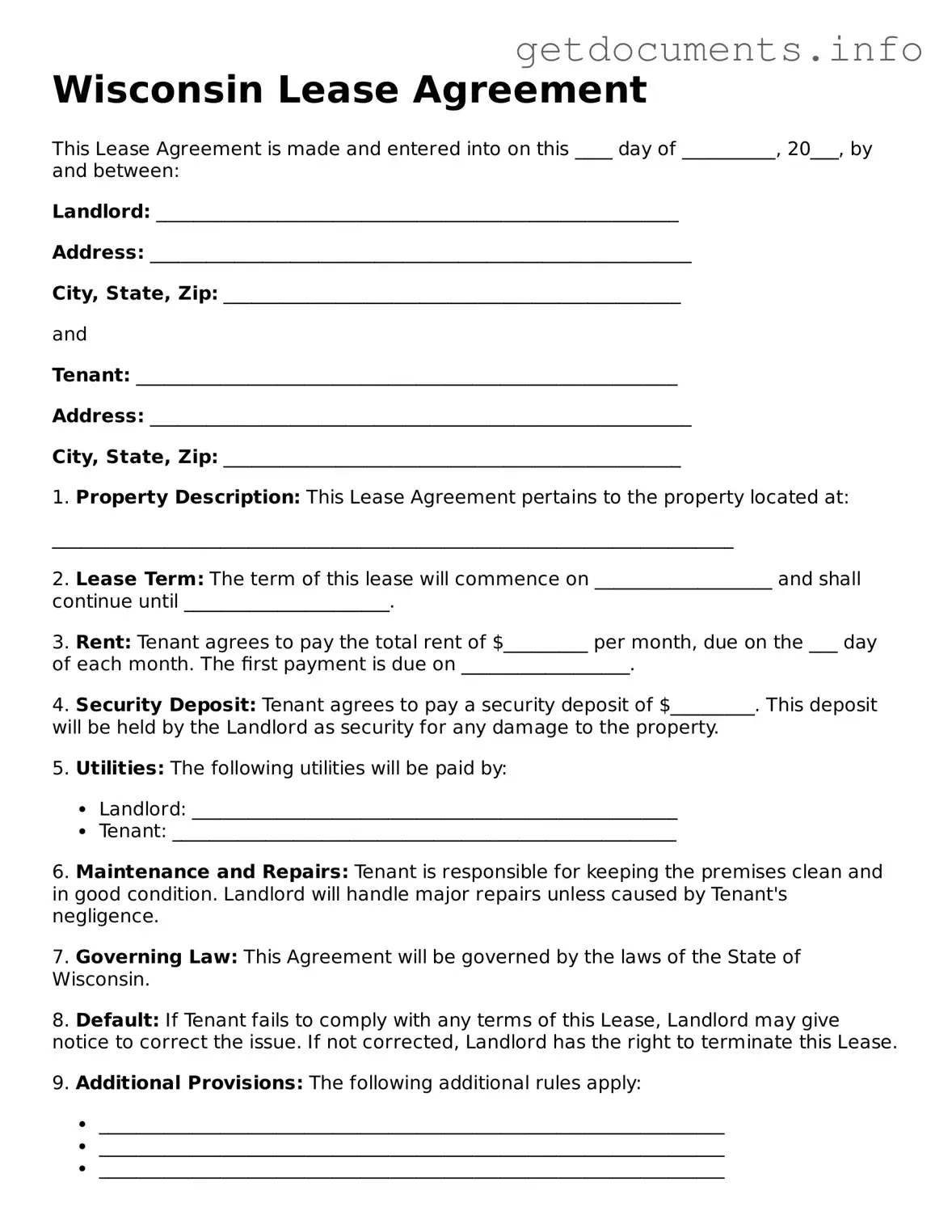Free Lease Agreement Template for Wisconsin
A Wisconsin Lease Agreement is a legally binding document that outlines the terms and conditions under which a landlord rents property to a tenant. This agreement serves to protect the rights of both parties, ensuring clarity and understanding in the rental relationship. If you're ready to begin your leasing journey, fill out the form by clicking the button below.
Access Lease Agreement Editor

Free Lease Agreement Template for Wisconsin
Access Lease Agreement Editor
Got places to be? Complete the form fast
Fill out Lease Agreement online and avoid printing or scanning.
Access Lease Agreement Editor
or
⇩ PDF File
